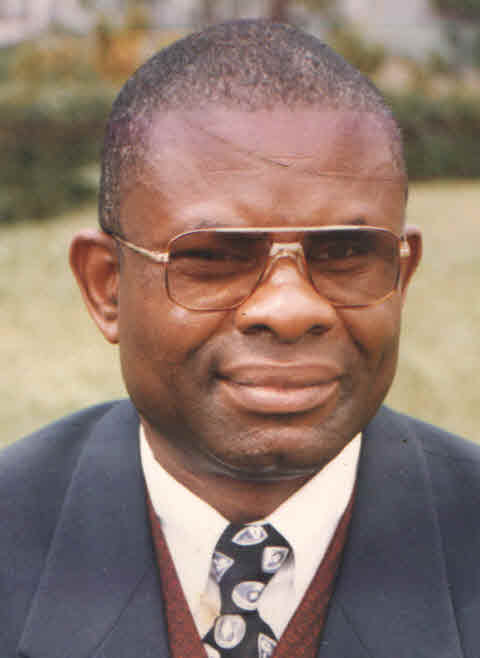By EKONG UTIP —
What Nigerians fear most seems to be coming after them. The fear of the country turning into a one-party state is one that has been with us since the Second Republic. It reared its ugly head in 1999, and was detected immediately after the March 28 presidential election results were announced. The APC might now find itself in the same situation that the PDP was in 1999. From Plateau to Abia, from Adamawa to Edo, and from Kwara to Ondo, the politicians have been defecting from the PDP to the APC in droves.
The PDP is gradually fading away as it has lost more states: Kogi is gone. Barring the body language of the judiciary, Taraba is as good as gone; Rivers is trembling; and Akwa Ibom’s fate is uncertain. The news from Bayelsa is not encouraging. Even in the other south-south and south-east states, at least two governors are warming up to drag their states to the APC within the next two years.
Now, the fear has been worsened by the outcomes of election petitions. What if the APC won a rerun in Rivers? It looks impossible but not unattainable. Akwa Ibom? Again, it looks impossible. But what if…? Post-election probes might be helping to achieve the one-party state faster than anticipated.
We all know about the bandwagon effect or Nigerian politicians’ penchant for avoiding opposition politics. Moving to the party in power, the thinking goes, ensures that one enjoys certain privileges – civil service jobs, political appointments and contracts gravitate only to those in the good books of the ruling party.
It’s called the winner-take-all disease. But this disease is curable with inclusiveness. It’s almost impossible for a ruling party to satisfy the yearnings of even its own members. So, why should everyone belong to the same political party and thus endanger democracy?
The sages tell us that failure is an orphan, while success has many friends. Were it not so, why should the victorious PDP swallow the APP that had run neck to neck with it soon after the 1999 polls? Mercifully, Nigeria has been saved by the merger of opposition parties in 2013.
It’s about time Nigerian politicians got the message that the quality of democracy is greatly improved by the quality of debates, and oversight functions performed by opposing parties. The dominance of one party in the country’s politics may always be there, but let us understand that the country would benefit more from competitive politics. As Desmond Tutu of South Africa once stated, “Democracy flourishes where there is vigorous debate and people are actually careful of what they do.”
To save democracy, informed Nigerians say no to one-party system. Alhaji Balarabe Musa of the PRP, Kayode Ajulo of the Labour Party, Babangida Aliyu of the PDP and the rest of us have at different times warned of the danger of allowing the nation to slip into a one-party state. When the APC came under attack after the presidential poll this year, its chairman John Odigie-Oyegun hinted that his party was not interested in foisting a one-party state on the nation. To demonstrate opposition against the slide into the unpalatable condition, Oyegun openly discouraged people from migrating to the winning party.
What is democracy without a vibrant opposition? We preached this same gospel when the PDP led by Obasanjo was decapitating opposition parties with both stick and carrot. Now that the APC is in the saddle, it must do everything feasible to save the opposition.
I must admit that President Buhari has committed little offence in this matter. Unlike Obasanjo who, in 1999, splashed appointments on opposition party leaders, the president has not lured chieftains of other parties with political appointments nor has he embraced recent decampees. State governors would do well to follow in the same footsteps – it’s an effort in strengthening democracy.
Let’s tame the monster before it devours all we’ve worked for these past 16 years. I don’t pray for an implosion in the APC, as happened in the PDP, in order to throw up a viable opposition again. Everybody should work consciously to keep the PDP alive, if for democracy’s sake. Wherever the PDP has become entrenched, the ruling party should not push too hard.
The perils of having a one-party system are better imagined. The idea that having all politicians in one party leads to unity is at best a piece of fiction: there can never be a consensus on any issue. And it’s not good for the economy either. History proves that multi-party politics ensures greater accountability in the running of public affairs. Ghana, Cape Verde and Botswana qualify as Africa’s democracy stars basically because of the existence of viable opposition parties in the countries. It is Burundi’s romance with one-party system that has now triggered a huge conflict in that country.
A two-party system is ideal for a multi-ethnic and multi-religious country like Nigeria. At the moment, three states deserve praise: Imo in the south-east, Gombe in the north-east and Ondo in the south-west. They went against the grain of sectional partisanship by producing governors from parties other than the most popular one in their geographical zones. It would be nice to see the two strongest parties maintain their grip on their states until current officeholders face the electorate again in 2019.
PDP has lost power at the centre, but its members have a duty to remain in their party and keep the ruling party on its toes. Where are the moneybags in the PDP – especially those that have been created by 16 unbroken years of the behemoth? I know it’s cold out there! But if politics must be played, it must be played with at least an iota of principle. Work comes before pleasure. A good politician should be ready to lose some and win some.
* Utip, a public affairs commentator, writes from Eket











